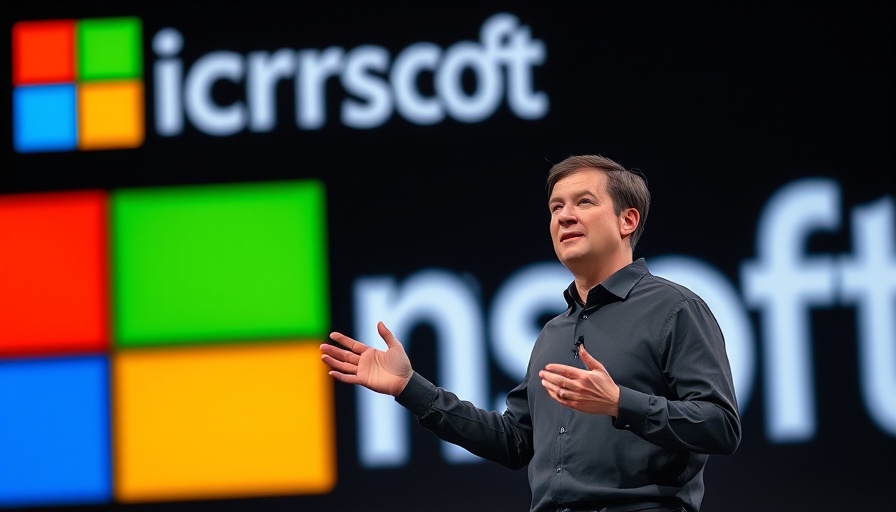
Microsoft’s Journey: A Half-Century of Innovation
As Microsoft celebrates its 50th anniversary, it offers a reflective lens on the evolution of technology and its own innovative journey. Founded in 1975 by childhood friends Bill Gates and Paul Allen, Microsoft began with a core vision: to leverage their programming skills to make computing more accessible. From its initial product, Altair BASIC, the brand quickly adapted and expanded, embracing the changing landscape of technology and transforming into a global leader.
Revolutionizing Personal Computing
Microsoft's impact on the personal computing world started in earnest with MS-DOS, the first widely adopted operating system. By the launch of Windows in 1985, Microsoft established itself as a pioneer in user-friendly interfaces. The launch of Windows 3.0 in 1990 was particularly significant, marking a turning point that would bring computing to the masses in ways previously unimagined. This focus on user experience positioned Microsoft as a household name.
Staying Ahead Through Adaptability
What sets Microsoft apart is its willingness to evolve. Over the decades, as new technologies emerged—from the rise of the internet to the proliferation of mobile devices—Microsoft continuously adapted its strategies. From the introduction of Microsoft Office products to cloud services with Azure, the company embraced new trends rather than resisting them. This proactive approach not only ensured its survival but also solidified its reputation as a tech giant.
Insights on Company Culture and Innovation
A key aspect of Microsoft’s sustained success is its culture of innovation. Unlike many companies that become stagnant over time, Microsoft has maintained a workplace that encourages creativity and risk-taking. The infectious enthusiasm displayed during events, such as the iconic launch of Windows 95, emphasized this cultural ethos. This environment fosters collaboration and inspires employees to push boundaries, resulting in groundbreaking advancements.
Lessons for Business Professionals
The insights gleaned from Microsoft’s journey serve as valuable lessons for tomorrow's business leaders. First, embrace change; markets evolve rapidly, and adaptability is essential for longevity. Second, prioritize a culture of innovation—encourage your teams to experiment and think outside the box. As showcased by Microsoft, this can yield remarkable outcomes, ultimately driving success.
Future Perspectives: What Lies Ahead for Microsoft?
Looking forward, Microsoft stands at the forefront of technology, specializing in cloud computing, artificial intelligence, and quantum computing. Predictions about the next fifty years may include deeper integration of AI in daily operations and the enhancement of remote work environments, which have become increasingly important in a post-pandemic world. By continuing its legacy of innovation, Microsoft not only shapes its own future but also influences the global technology landscape.
The half-century mark is not just a milestone but an invitation to reflect on lessons learned and challenges overcome. As business professionals, we can draw inspiration from Microsoft’s journey of consistent evolution. The real challenge lies in applying these insights to our own organizations, fostering environments that celebrate innovation and adaptability.
As we celebrate Microsoft’s monumental achievement, let’s take a leaf from their book: stay flexible, invest in innovation, and never hesitate to adapt. These principles can guide any organization beyond its own 50-year mark.”
 Add Row
Add Row  Add
Add 




Write A Comment